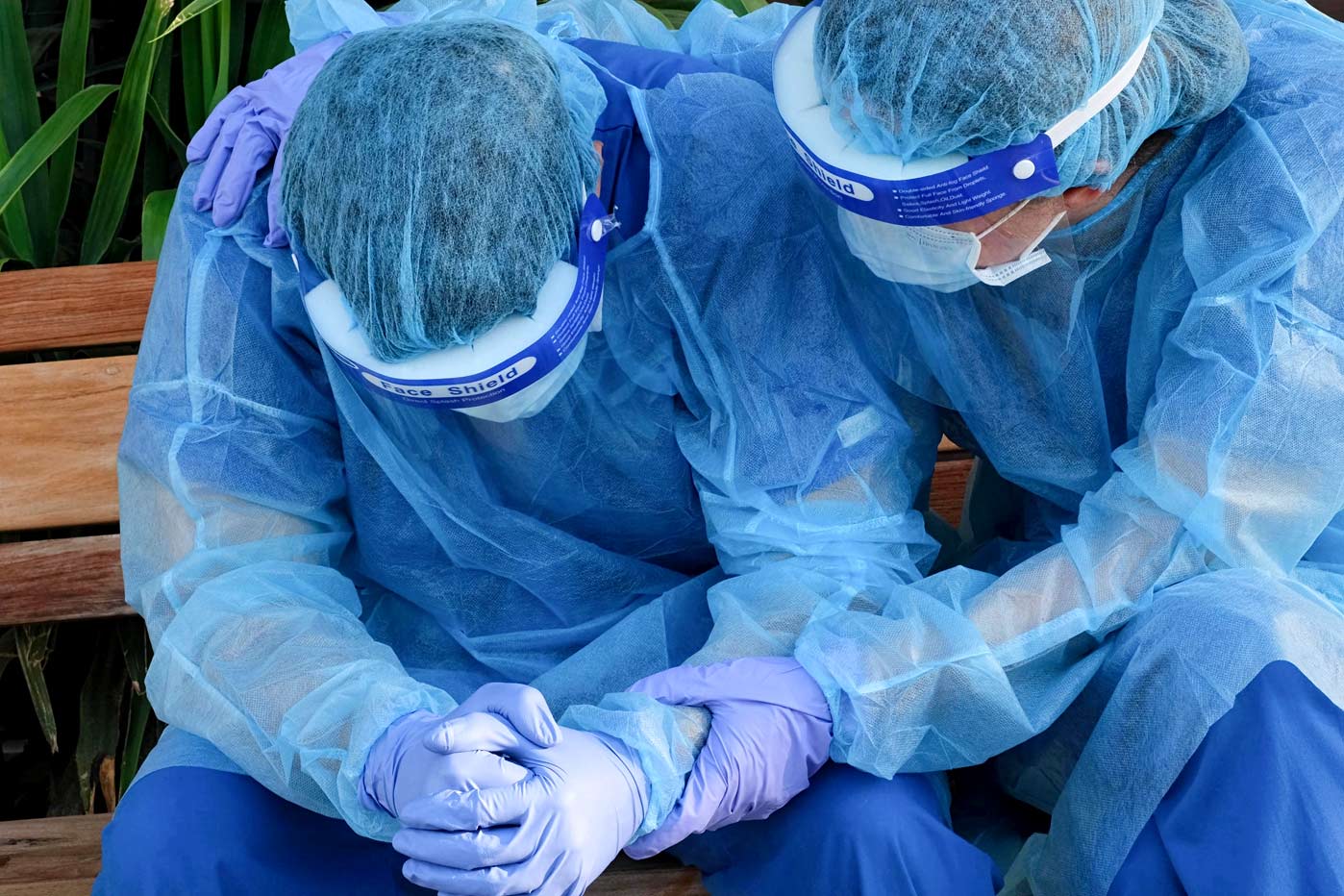
At some point in their career, nearly all physicians will experience a patient’s death — and with that can come feelings of grief as well as a sense of powerlessness, self-doubt, guilt and failure. The COVID-19 pandemic has changed the rate at which physicians experience grief. Health care providers on the front lines of the pandemic have faced the unique challenge of experiencing grief around the death of patients, colleagues and their own loved ones.
In addition to having less time to grieve because of a higher influx of patients, the way death is processed has changed dramatically. According to CMAJ, COVID-19 causes patients’ condition to deteriorate rapidly and they die quickly, making it difficult for physicians to grieve properly as they have to almost immediately focus on the next patient. Further to this, end-of-life conversations with patients’ families are now often happening remotely, creating a sense of disconnection from the people physicians are trying to help. Understaffing and a lack of resources during the peaks of the pandemic have also led to a sense of moral distress, making the grieving process that much more challenging.
Grief in the workplace may contribute to a physician’s experience of burnout including emotional exhaustion, depersonalization and low sense of achievement.
Many physicians are reluctant to seek support to deal with these feelings, however, often because they are struggling to balance emotional concern for the patient with a need for professional detachment.
The culture of medicine can also cause physicians to hide their grief as they may consider its expression weak or unprofessional.
Medical errors can also inspire grief. Medicine is a culture of high standards and perfectionism, so when a medical error happens, it is rarely discussed openly.
Physicians who make errors often carry with them a heavy emotional burden, including sadness, shame and fear. Left unaddressed, these feelings can lead to anxiety, burnout, depression and even suicide.
Tips for dealing with grief
While each physician will deal with grief differently, the Canadian Mental Health Association recommends a few ways to cope with this experience:
- Name it: naming grief means you can begin to understand the underlying emotions you are feeling and address them
- Validate it: recognize all feelings and acknowledge them as important without judgment
- Mourn: this includes accepting the reality of the loss, experiencing and processing the pain, adjusting to the world without the deceased and finding a way to maintain connection to the deceased
- Celebrate the good: acknowledge the things you can be grateful for
- Set a routine: this can ensure that you engage in a mix of social, physical and educational activities and can offer a sense of control
- Avoid comparing: instead of comparing yourself to others who are facing similar situations, focus on your own strengths and coping strategies
- Seek support: We encourage you to visit the Physician Wellness Support page for a list of national crisis numbers and provincial physician healh programs.
Tips for helping a colleague cope with grief
The nature of the medical profession makes grief an expected experience. But physicians are still human and need support to stay healthy so they can provide the best care for patients. Here are some ways you can support a colleague who is dealing with grief:
- Practise active listening to ensure your colleague knows you are listening to them.
- Show compassion and empathy.
- Normalize their feelings of grief.
- Suggest they seek peer support to talk about their loss.
- Encourage your colleague to practise self-care, including being attentive to their own needs and acknowledging their feelings of grief and loss.
- Support your colleague the way they want to be supported — which may not be the same as the way you would want to be supported. Some people will not want to talk about it in detail, while others prefer to let it all out.
If your colleague is grieving a medical error, suggest a clinical debrief. The goal of a debrief is to identify aspects of team performance that went well and those that did not, then identify opportunities for improvement at the individual, team and system levels. A study published in Academic Medicine shows that talking about a medical error and working as a team to find ways to prevent it from happening again can help physicians cope with their grief.
Here is a quick three-question approach to debriefing:
- What went well?
- What did not go well?
- What can we do differently or what needs to change to improve care?
Putting grief recovery into practice
Here are some examples of empathetic communication that may guide you the next time you see a colleague struggling with grief:
“I’m sorry to hear you recently lost a patient. That can often have an emotional impact. How are you doing?” [active listening]
“I’m sorry you’re going through this. I understand how difficult it is, even if you’ve been doing this for 20 years.” [empathetic communication]
“You know you did everything you could. Remember, you are a good doctor.” [empathetic communication]
“I understand how you’re feeling, and it’s OK to feel this way. Do you want to get a coffee after work to chat more? If not, it’s OK. Just please make sure you take the time you need to deal with how you’re feeling. Let’s see if we can get your shift covered.” [active listening; encouraging self-care]
Topics
Are you in distress? Get help now.
